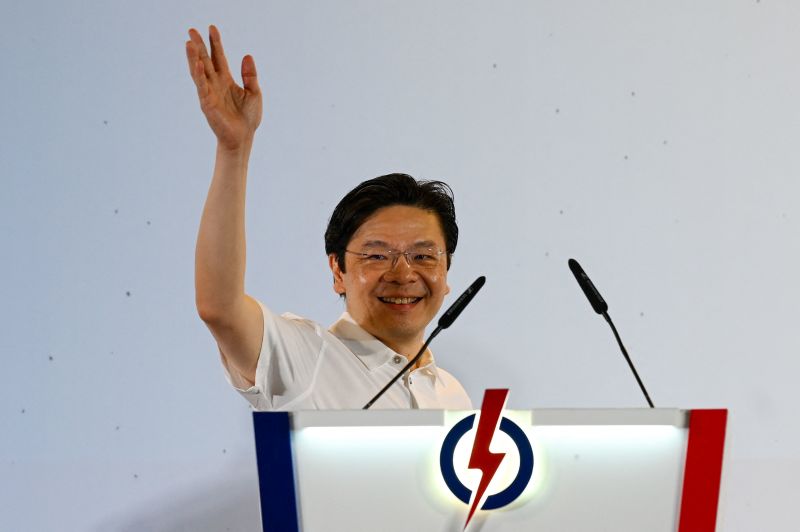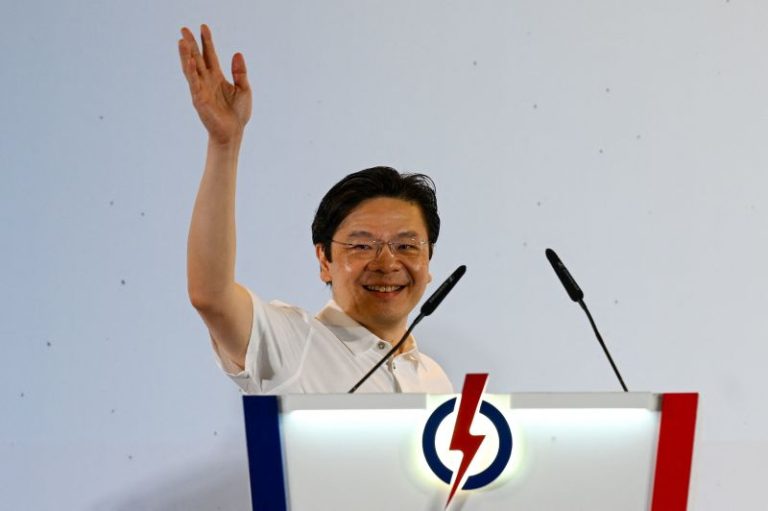
Singapore’s People’s Action Party won its 14th successive election on Saturday to extend its unbroken six-decade rule, delivering a strong mandate to its new premier as the city-state braces for economic turbulence from a global trade war.
The PAP, which has ruled since before Singapore’s 1965 independence, won 87 of the 97 parliamentary seats up for grabs, with victories by huge margins in many of the 33 constituencies as the opposition failed to extend gains in previous contests.
The election was a bellwether of the popularity of the PAP amid some signs of disenchantment with its tight grip on power in the Asian financial hub, whose six million people have known no other kind of government.
Though the PAP has consistently won about 90% of seats, its share of the popular vote is closely watched as a measure of the strength of its mandate, with Prime Minister Lawrence Wong eager to leave a mark on his first election in charge after one of the PAP’s worst performances on record last time.
The PAP had yet to be formally declared winner but took 65.57% of the vote, according to local media, surpassing the 61.2% achieved in the 2020 contest.
The outcome will be seen as a ringing public endorsement of US-educated Wong, 52, who became Singapore’s fourth prime minister last year, promising continuity as well as new blood and a new style of leadership.
He took over at the end of the two-decade premiership of Lee Hsien Loong, the son of former leader Lee Kuan Yew, founder of modern Singapore.
Recession risk
Wong must address high living costs and a shortage of housing: persistent problems in one of the world’s most expensive cities, which faces a risk of recession and job losses if its trade-dependent economy takes a hit from the trade war triggered by steep US tariffs.
Wong thanked his constituents, saying: “We are grateful once again for your strong mandate, and we will honor it.”
Though the PAP win maintains the status quo, the margin of victory in most races was significant, with the opposition decimated and PAP candidates winning more than two-thirds of the vote in 18 of 33 constituencies.
“The voters have spoken and they have voted for stability, for continuity, for certainty – and they voted to give Prime Minister Lawrence Wong a strong mandate,” said Mustafa Izzuddin, adjunct senior lecturer at the National University of Singapore.
Although a PAP defeat was always extremely unlikely, some analysts had said the election could have altered the future political dynamic if the opposition had made more gains, with some younger voters keen for fresh voices, greater scrutiny and more robust debate.
But that could take time. Like previous elections, Saturday’s was a lopsided affair, with 46% of all candidates representing the PAP.
The ruling party ran in all seats, compared to just 26 for the Workers’ Party, which won the 10 seats PAP did not win.
The PAP has a big membership to draw from, influence in state institutions and far greater resources than its untested opponents.
Joshua Kurlantzick, senior fellow for Southeast Asia and South Asia at the Council on Foreign Relations, said the PAP’s decisive win came down to Singaporeans backing a known quantity at a time of uncertainty.
“It’s a flight to safety – not wanting to change to a new party amidst the greatest global trade tensions in decades,” he said.
“Just because they are a rock in times of trouble – the same issues are there (that) they need to address.”

